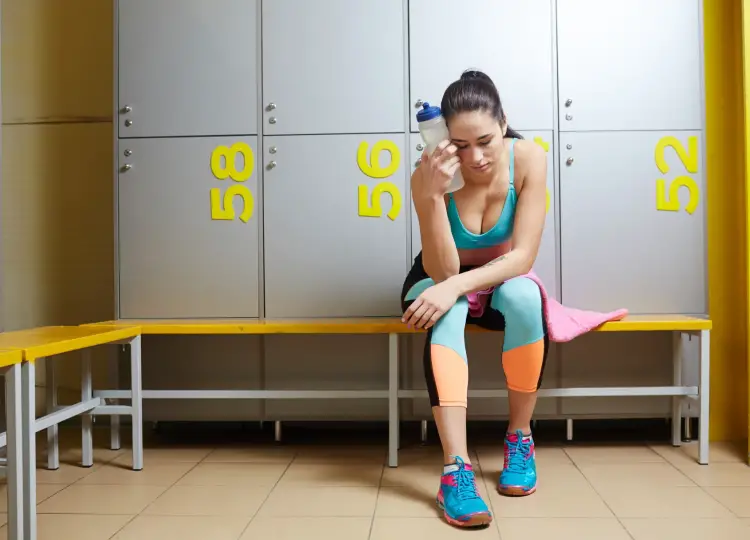The topic of exercising during your period is one that many women grapple with. While some women prefer to take it easy during this time of the month, others wonder if hitting the gym can actually be beneficial. The truth is, there's no one-size-fits-all answer to whether it's good to go to the gym on your period. It largely depends on your individual circumstances and how your body feels. In this article, we will explore the pros and cons of working out during your period and provide tips to help you make an informed decision.
The Pros of Exercising During Your Period
Pain Relief
One of the most significant benefits of exercising during your period is pain relief. Many women experience menstrual cramps and lower back pain during this time, and exercise can help alleviate these discomforts. When you work out, your body releases endorphins, which act as natural painkillers and mood boosters. This can make you feel better and more comfortable throughout the day.
Improved Mood
Hormonal fluctuations during your menstrual cycle can sometimes lead to mood swings and irritability. Exercise has been shown to have a positive impact on mood by increasing the production of serotonin, a neurotransmitter associated with feelings of well-being. So, hitting the gym can help you maintain a more stable and positive mood during your period.
Enhanced Circulation
Exercise increases blood flow throughout your body, which can help reduce bloating and the feeling of heaviness that some women experience during menstruation. Improved circulation may also help relieve headaches and overall fatigue.
Stress Reduction
Stress is a common symptom during your period, and exercise is an excellent stress reliever. Engaging in physical activity can help you relax and reduce stress levels, which can be especially helpful when dealing with the added stress of your menstrual cycle.
Better Sleep
Some women find it difficult to sleep well during their period due to discomfort or hormonal changes. Regular exercise has been linked to improved sleep quality, so working out may help you get a better night's rest during your period.
The Cons of Exercising During Your Period
Fatigue
While exercise can help reduce fatigue in some cases, it's important to acknowledge that you might feel more tired than usual during your period. If you're experiencing significant fatigue, it's okay to take it easy and prioritize rest over strenuous workouts.
Risk of Overexertion
During your period, your body's energy levels and endurance may vary. Pushing yourself too hard at the gym when you're feeling drained can lead to overexertion, which may result in injury or increased discomfort. Listen to your body and adjust your workout intensity accordingly.
Hydration and Nutrition
Menstruation can cause increased fluid loss and changes in appetite for some women. It's crucial to stay hydrated and nourished, especially if you're working out. Dehydration can worsen cramps and fatigue, so pay attention to your body's needs and fuel it adequately.
Risk of Infection
Menstrual blood, sweat, and humidity can create an environment conducive to bacterial growth. To reduce the risk of infection, it's essential to maintain good hygiene, change sanitary products frequently, and consider using moisture-wicking workout clothing.
Tips for Exercising During Your Period
If you decide to exercise during your period, here are some tips to make the experience more comfortable and effective:
Choose the Right Activity
Opt for low-impact exercises such as yoga, Pilates, walking, or swimming. These activities are gentler on your body and can help alleviate cramps and discomfort.
Adjust Your Intensity
Listen to your body and adjust the intensity of your workout accordingly. If you usually engage in high-intensity workouts, consider scaling back or incorporating lighter routines during your period.
Stay Hydrated and Nourished
Pay extra attention to your hydration and nutrition. Drink plenty of water and eat balanced meals to ensure you have enough energy for your workouts.
Wear Comfortable Clothing
Choose comfortable, moisture-wicking workout attire to prevent excessive sweating and maintain hygiene.
Practice Good Hygiene
Change your sanitary products regularly and maintain proper hygiene to reduce the risk of infection.
Be Mindful of Your Mental Health
Prioritize your mental well-being by practicing mindfulness and relaxation techniques. Don't be too hard on yourself if you need to take a break or skip a workout.
Track Your Cycle
Keeping a menstrual cycle calendar can help you anticipate your period and plan your workouts accordingly. Some women find that their symptoms vary from month to month.
Conclusion
The decision of whether or not to go to the gym during your period ultimately comes down to how you feel and your individual preferences. There are both pros and cons to exercising during this time of the month, and it's important to strike a balance between staying active and taking care of your body's needs. If you're experiencing severe pain, fatigue, or discomfort, it's perfectly okay to skip the gym and prioritize rest and self-care instead. On the other hand, if you find that exercise helps alleviate your menstrual symptoms and improves your overall well-being, then by all means, lace up your sneakers and head to the gym. Remember, the most crucial factor is to listen to your body and do what feels right for you.
Image by pressfoto on Freepik






